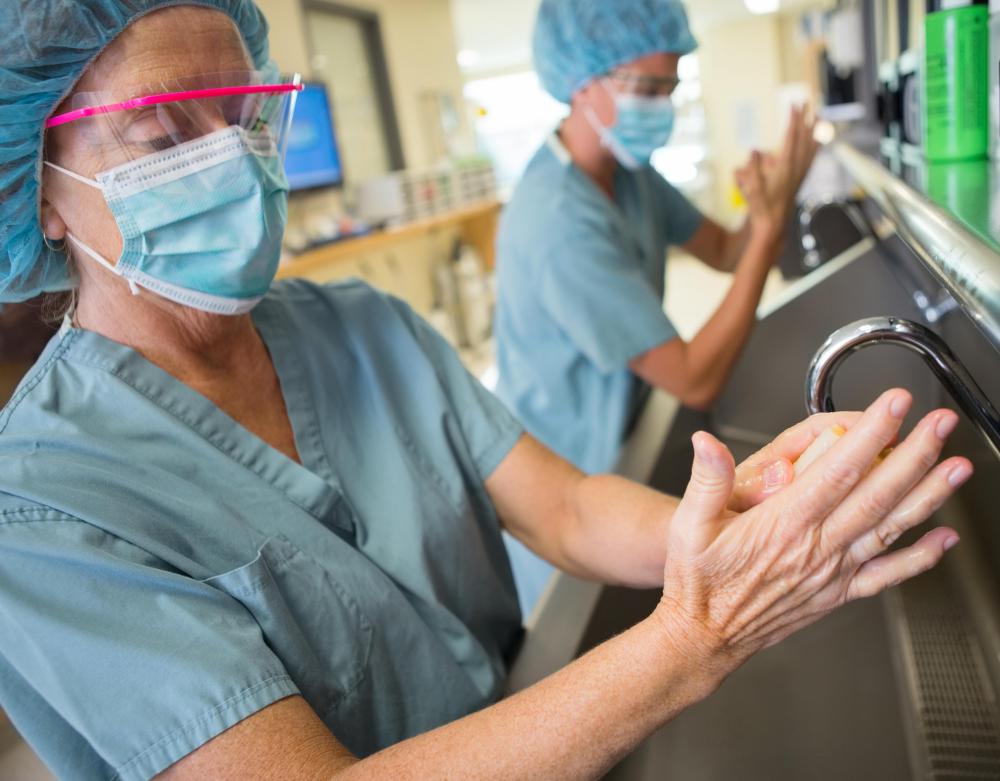At TheHealthBoard, we're committed to delivering accurate, trustworthy information. Our expert-authored content is rigorously fact-checked and sourced from credible authorities. Discover how we uphold the highest standards in providing you with reliable knowledge.
What is a Major Surgery?
There are varying definitions of major surgery, and what constitutes the difference between major and minor surgery. As a general rule, a major procedure is any surgery in which the patient must be put under general anesthesia and given respiratory assistance because he or she cannot breathe independently. In addition, major surgery usually carries some degree of risk to the patient's life, or the potential for severe disability if something goes wrong during the surgery.
Several other features can be used to distinguish major surgery from minor surgery. For example, in a major surgical procedure, significant resection or changes to the anatomy are involved, as in situations where organs are removed, or joints are rebuilt with artificial parts. Any penetration of the body cavity is treated as major surgery, as are extensive orthopedic surgeries on the extremities. Neurosurgery is generally considered major because of the risks to the patient, even though patients are not necessarily under general anesthesia during procedures on the brain.

Some examples of major surgical procedures include knee replacement, cardiovascular surgery, and organ transplants. These procedures carry definite risks from the patient such as infection at the site of the surgery, hemorrhage, or complications from the general anesthetic used. To reduce the potential for complications, major surgery takes place in a sterile operating room where very precise procedures are observed to reduce the risk of contamination and the patient is monitored by an anesthesiologist and a medical team for any signs of distress.

Recovery from major surgery can take several days or weeks. In the first few days, the patient is often hospitalized so that he or she can be monitored, and physical therapy may be offered to get the patient active, which reduces the risk of post surgical complications. After the patient is released, he or she may have to continue taking certain medications, and observing precautions during the healing period.

Preparation for major surgery can also be extensive. The patient usually needs to consult with a surgeon to talk about the procedure, the recovery time, and important aftercare instructions, and he or she will need to undergo a series of tests to confirm fitness for surgery. In emergency surgery where such lengthy preparations may not be an option, surgeons have to use their best judgment to make appropriate decisions for patients who are in critical need of surgery. A patient with abdominal bleeding, for example, may not be able to sign consent forms or to review documentation related to the surgery which would be needed to stop the bleeding.
AS FEATURED ON:
AS FEATURED ON:





















Discussion Comments
While it's true that many brain surgeries aren't under general anesthesia, many are. I had a brain surgery to remove a brain tumor and I was under general anesthesia. While there is no pain to the brain itself, there is much pain to the outside skull and outer tissues. I was in a lot of pain when I woke up and had a morphine drip. I also had a lot of pain when my brain cavity began to fill with fluid where the previous brain tissue had been removed. It caused a lot of pressure and was quite painful.
Illych is correct -- there is no pain in the brain, and it is a widespread practice to keep the patient 'awake' during such a surgery. The doctors may sometimes administer medications that make the patient not able to remember the experience. Every case and practice is different.
@softener - Believe it or not, there's no pain in the brain. The patient is usually lightly sedated beforehand and then their scalp is numbed, allowing the surgeon to make the incision.
There are a few reasons why keeping the patient awake might be a good option, the main one being that the patient is able to respond while the operation is being performed. Depending on the area of the brain they're operating, they might ask the patient to try to move occasionally to make sure they're not getting to any areas that might affect motor function. The same can apply for speech. So in many ways it can make major surgery safer.
Also, patients who have not been under general anesthesia tend to heal faster than those who have.
I'd heard of some patients not being under general anesthesia during procedures on the brain but I found it hard to believe. How is this possible? For what reasons wouldn't they put the patient under general anesthesia anyway? Wouldn't it be painful?
Post your comments